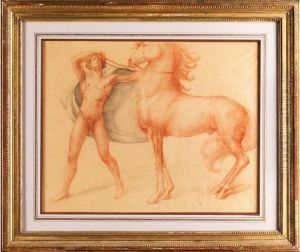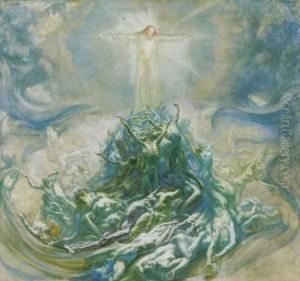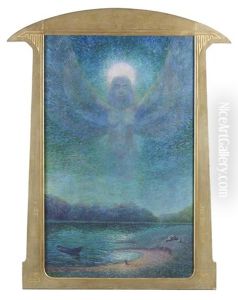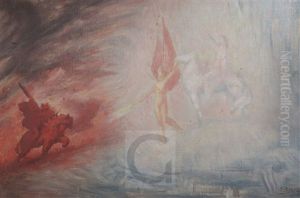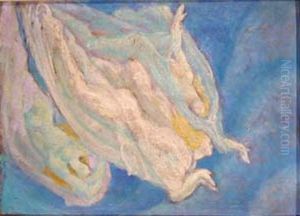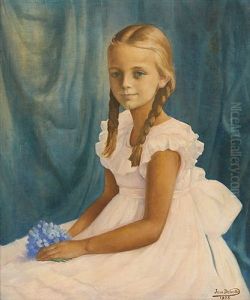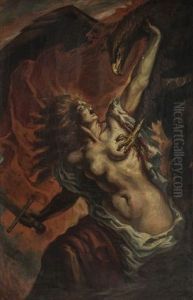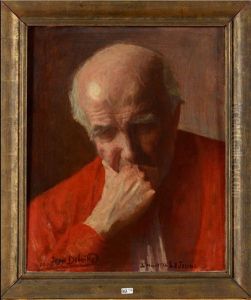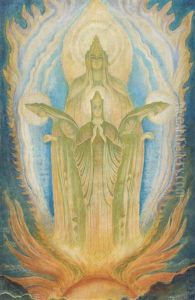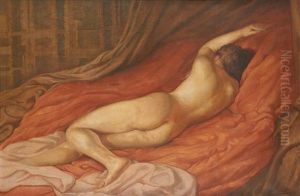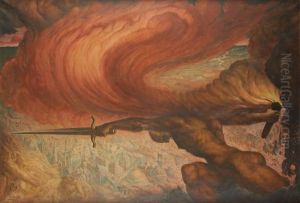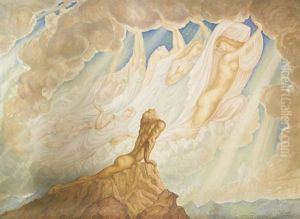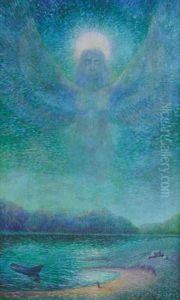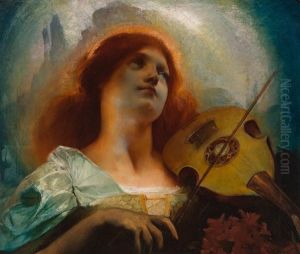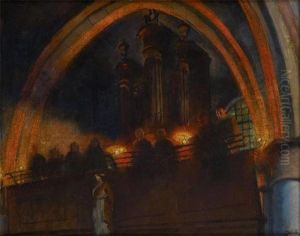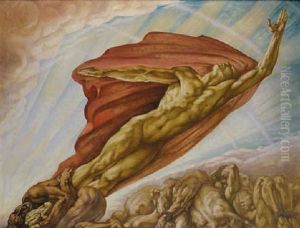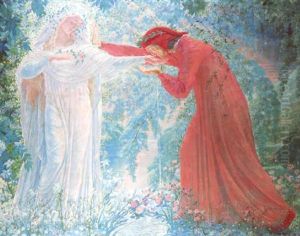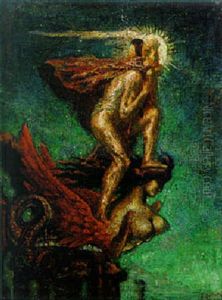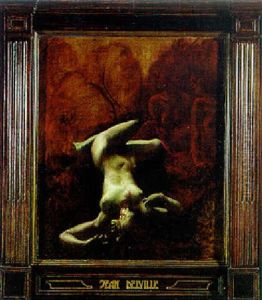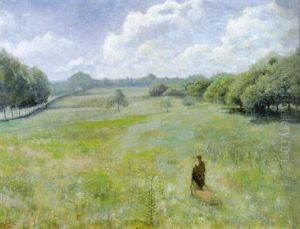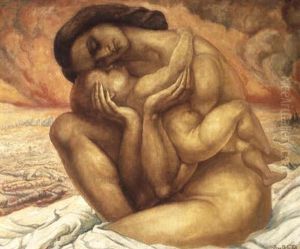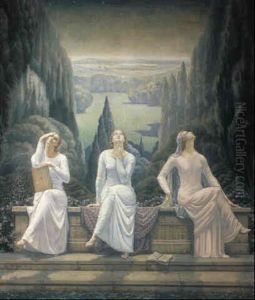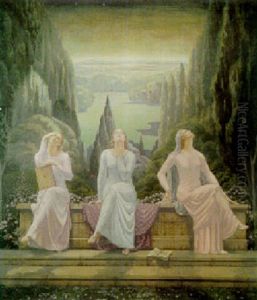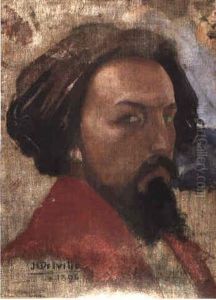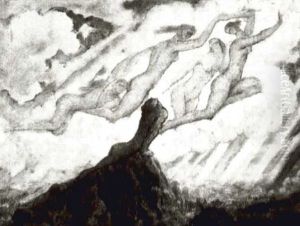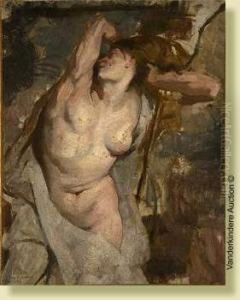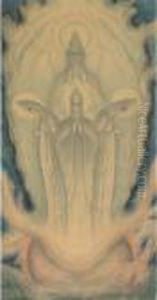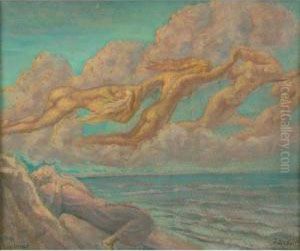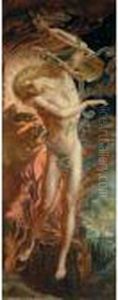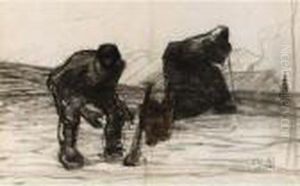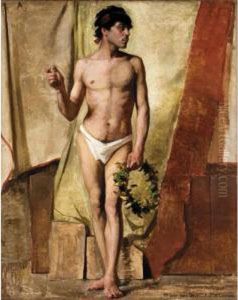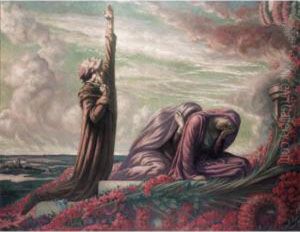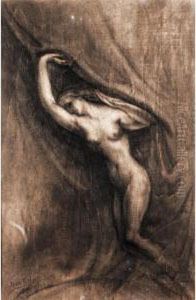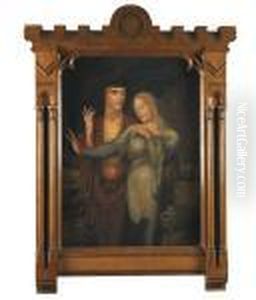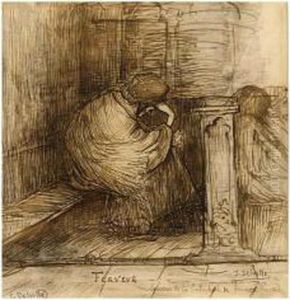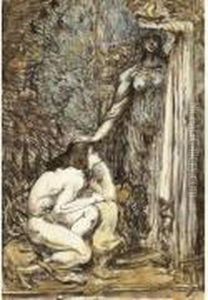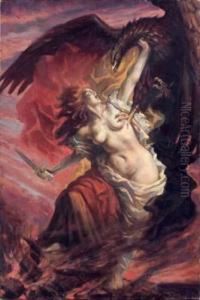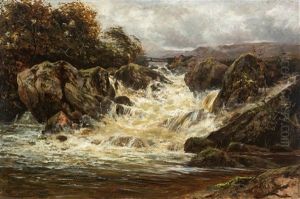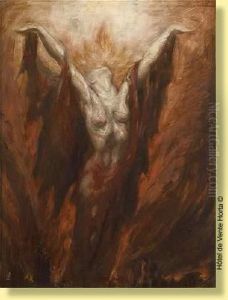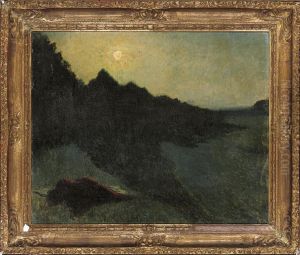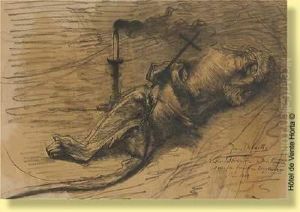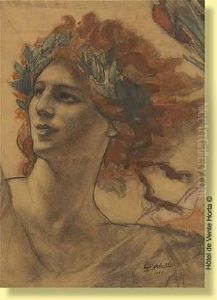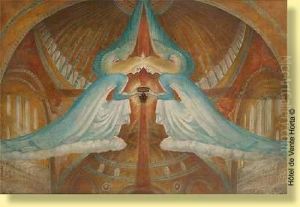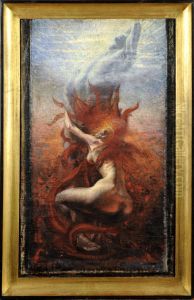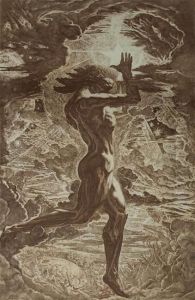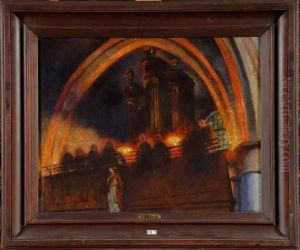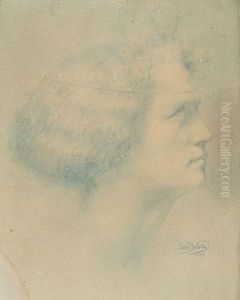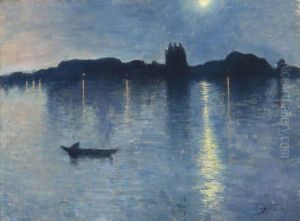Jean Delville Paintings
Jean Delville was a Belgian painter, writer, and occultist, often associated with the Symbolist movement that emerged at the end of the 19th century. Born on January 19, 1867, in Leuven, Belgium, Delville was a pivotal figure in the Symbolist art movement, which sought to express the spiritual, the emotional, and the imaginative through evocative and often mystical imagery.
Delville received his artistic training at the Royal Academy of Fine Arts in Brussels, where he excelled in his studies and began to develop his distinctive style. He was deeply influenced by the ideals of idealism and theosophy, which are reflected in his works that often explore themes of metaphysics, transcendence, and the human soul's connection to the divine.
In 1896, Delville founded the Salon d'Art Idéaliste, which served as a forum for like-minded artists who were interested in the integration of mystical and esoteric themes into their art. His work during this period is characterized by a meticulous technique and a use of color that aimed to evoke emotional resonance rather than to represent the physical world realistically.
Delville's paintings are characterized by their intense spirituality and symbolism. Among his most famous works is 'The School of Plato,' a grandiose and allegorical painting that depicts the ancient philosopher as a spiritual guide leading his disciples towards the light of knowledge.
Throughout his career, Delville also engaged in writing and teaching. He penned several essays and books on artistic theory, esotericism, and symbolism. From 1907 to 1937, he taught at the Royal Academy of Fine Arts in Brussels, where he influenced a new generation of artists.
During his later years, Delville's work shifted towards a more conservative and classical style, although he never abandoned his spiritual and symbolic themes. He continued to produce art and write until his death on January 19, 1953, in Forest, Brussels, leaving behind a legacy that has influenced both art and esoteric studies. Delville's work is still studied and exhibited today for its intricate blend of spiritual symbolism and technical mastery.
